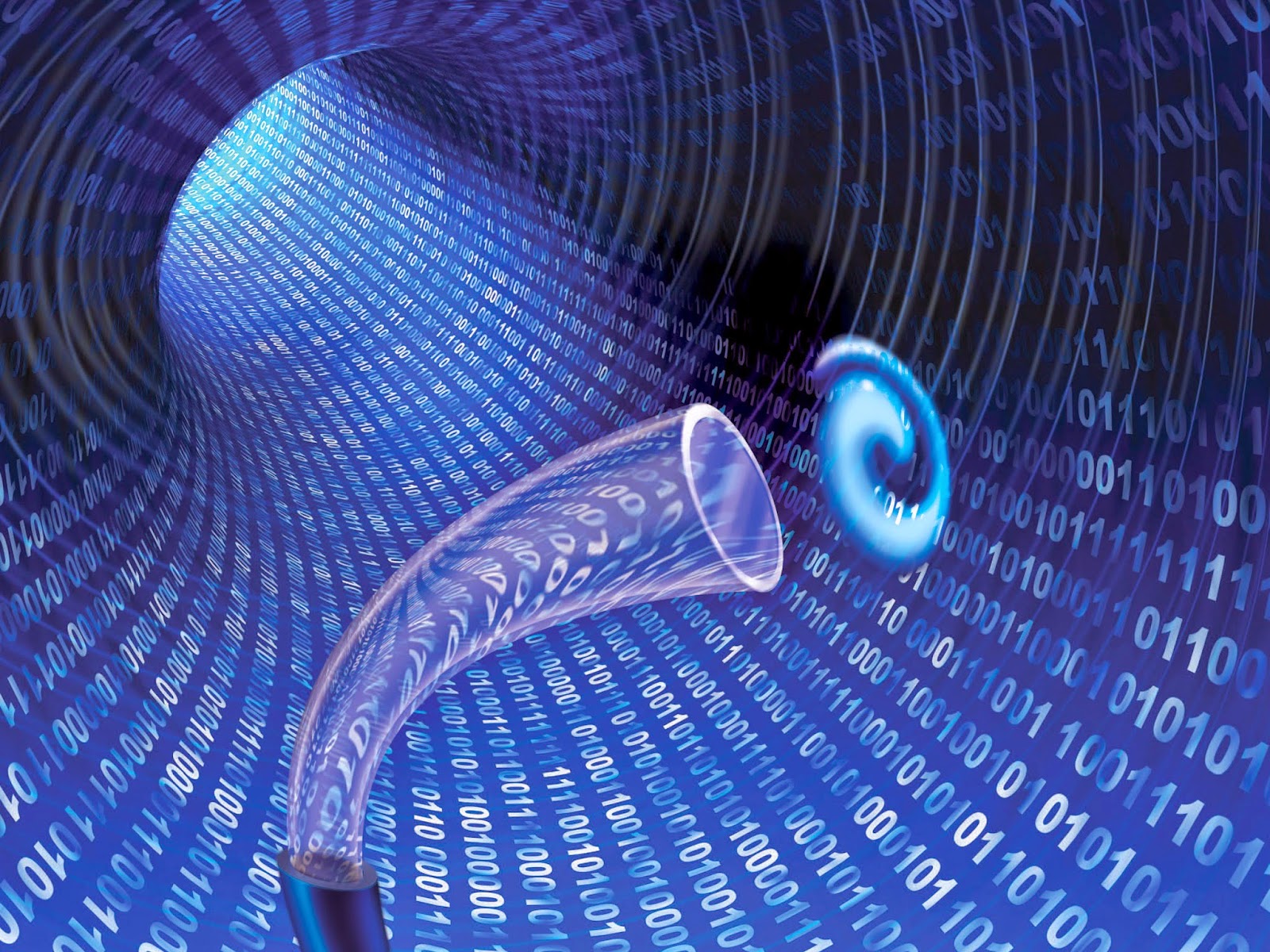A new data transfer record: 43 terabits per second
A team in Denmark has broken the world record for single fibre data transmission, achieving a transfer rate of 43 terabits per second over a distance of 41 miles (67 km). They also report a speed of 1 petabit (1000 terabits) when combining multiple lasers.
In 2009, a research group at the Technical University of Denmark (DTU) was the first to break the 1 terabit barrier for data transfer. Their record was shattered in 2011, when the Karlsruhe Institute of Technology in Germany achieved 26 terabits per second. Now, DTU have regained the title, demonstrating 43 terabits per second (Tbps) through a single optical fibre. This is fast enough to download a 1GB file in about 0.0002 seconds – or the entire contents of a 1TB hard drive in 0.2 seconds.
The Danish team's effort may seem almost excessive, to the point of comedy. However, current trends show that insanely fast transfer speeds like this will be necessary in the relatively near future. Like a digital explosion, the Internet continues to expand and grow exponentially – doubling in size every two years. Improvements in video quality and image resolution mean the amount of data appearing online is mushrooming to enormous proportions, while at the same time, billions more people are gaining access to the web.
.jpg)
.jpg)
This also requires energy which currently generates about two percent of CO2 emissions. Therefore, it is essential to identify solutions for the Internet that make significant reductions in power consumption while simultaneously expanding the bandwidth.
DTU's researchers achieved their latest record by using a new type of optical fibre borrowed from the Japanese telecoms giant NNT. This type of fibre contains seven cores (glass threads) instead of the single core used in standard fibres, making it possible to transfer even more data. Despite the fact that it comprises seven cores, the new fibre does not take up any more space than the standard version.
As to when speeds in the tens of terabits range might be affordable to mainstream consumers, we reckon sometime in the 2030s.


No comments:
Post a Comment